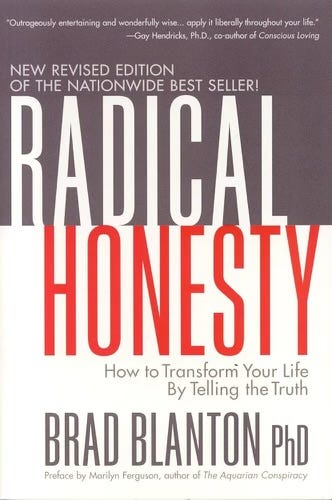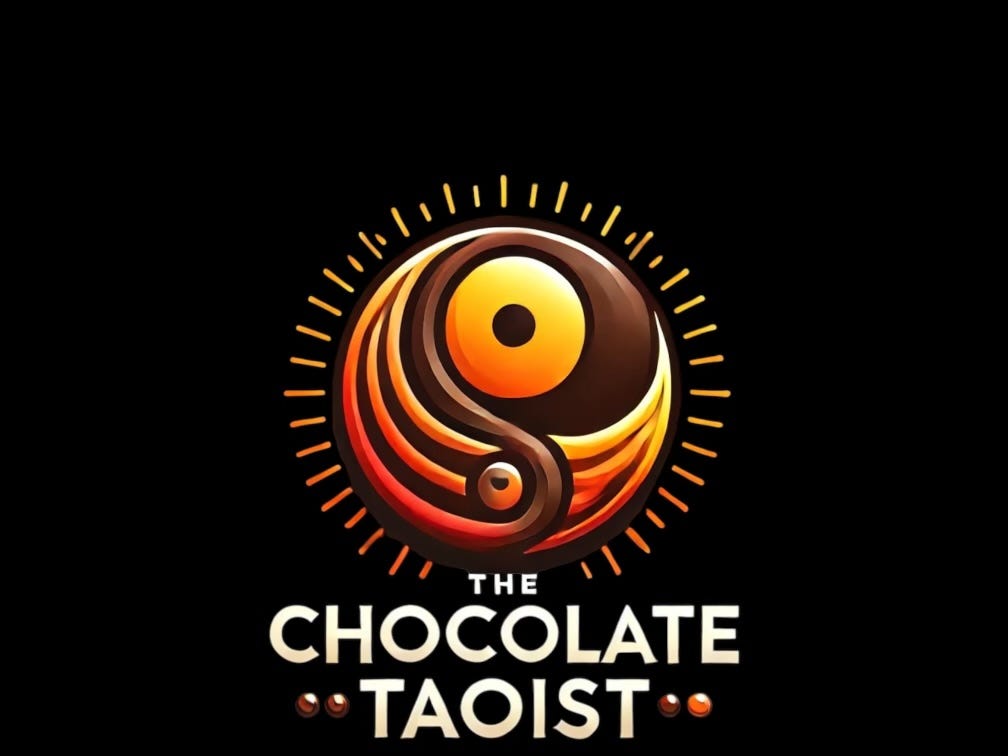Years ago, while on a business trip to Orlando, Florida, I picked up a book at an area Barnes & Noble that would introduce me to a way of living that was as refreshing as it was terrifying:
Radical Honesty by Brad Blanton, Ph.D.
At the time, I was intrigued by the audacity of Blanton’s philosophy—living a life in which you tell the truth, not just in the big moments, but in the small, often uncomfortable ones too. It wasn’t just about refusing to lie, it was about refusing to omit, sugarcoat, or withhold the truth.
This approach fascinated me, and I found myself reflecting on how often I avoided raw honesty, even in seemingly insignificant interactions.
While this book planted a seed, it wasn’t until recently that I revisited Blanton’s ideas at a pivotal moment in my life and realized just how powerful his teachings could be for someone feeling stuck.
The Core of Radical Honesty
At the heart of Blanton’s philosophy is the belief that dishonesty—whether through outright lies, avoidance, or half-truths—creates unnecessary suffering. According to him, most of our stress and anxiety comes not from external factors, but from the internal conflict we experience when we withhold the truth from others and ourselves.
By practicing radical honesty, we free ourselves from the emotional baggage that accumulates when we live a life of pretense. Blanton asserts that truth-telling, even when it’s difficult or uncomfortable, is the only way to foster real connection, heal wounds, and ultimately lead a more authentic and fulfilling life.
When I first encountered these ideas years ago, I appreciated the theory but wasn’t fully ready to embrace it in practice. There was something about the notion of being fully honest that felt liberating, but also deeply intimidating.
I was not alone in my hesitation—after all, who hasn’t bent the truth to avoid conflict or to spare someone’s feelings? It’s a habit most of us develop early in life, often to protect ourselves or others from discomfort. But Blanton argues that this very avoidance is what keeps us trapped in cycles of disconnection and frustration.
A Pivotal Moment for Revisiting Radical Honesty
Recently, I found myself returning to Blanton’s work, particularly his follow-up book “Practicing Radical Honesty,” as I navigated a pivotal time in my life. There was a growing sense of being stuck, not just in my circumstances, but in my relationships and the stories I was telling myself.
I realized that the stagnation I was feeling was in large part due to my reluctance to confront uncomfortable truths—not only with others, but within myself.
Practicing Radical Honesty offered a guide to not just understanding the importance of truth-telling, but actually living it day by day. Blanton breaks down the process into manageable steps, encouraging us to be direct and transparent with those around us, while also cultivating a deep awareness of our own thoughts and emotions.
The book challenges readers to drop the facades, the polite lies, and the avoidance strategies that many of us use to navigate the complexities of life.
What struck me during this revisit was how applicable Blanton’s philosophy is for those feeling stuck in life. When we withhold the truth, we become prisoners of our own minds, constantly replaying scenarios and what-ifs, often convincing ourselves that things are fine when they aren’t.
This avoidance of truth leads to a kind of paralysis, where we remain in jobs, relationships, or situations that no longer serve us because we fear the consequences of honesty.
The Virtues of Radical Honesty for the Stuck
For those who feel stagnant, Radical Honesty offers a path out of the quagmire. By speaking truthfully, we can dismantle the stories we’ve constructed that keep us from moving forward. Blanton’s approach forces us to confront the reality of our situations, even when it’s uncomfortable.
It encourages us to let go of the need to control how others perceive us, trusting that authenticity will lead to more meaningful relationships and a more purposeful life.
In my own experience, revisiting Radical Honesty has been both challenging and freeing. Conversations that I had avoided for years began to take place, not just with others, but within myself. I began to see how much energy I had been wasting by holding back my true feelings or suppressing difficult truths, and the process of letting those truths out was both cathartic and eye-opening.
In the end, the virtue of Radical Honesty lies in its ability to break down the walls we’ve built around ourselves, whether those walls are made of fear, shame, or self-doubt.
It’s not an easy practice—there are moments of discomfort and confrontation—but it is a necessary one for anyone seeking to live a more authentic and fulfilling life.
If you find yourself stuck, repeating the same patterns, or feeling disconnected from the people and experiences around you, perhaps it’s time to look at the role honesty—or the lack thereof—plays in your life.
For me, the decision to revisit Blanton’s work during this pivotal moment has been transformative. It has reminded me that truth-telling is not just a moral obligation or a social nicety—it is a radical act of self-liberation.
Through Radical Honesty, I’ve begun to clear away the cobwebs of avoidance and step into a more authentic version of myself, one honest conversation at a time.
Since 2022, “The Chocolate Taoist” digital newsletter has delivered uncommon nomadic wisdom with the aim of helping you live a more interconnected and expansive life.
If this publication has been a source of wisdom for you then please consider helping me sustain it by becoming a monthly or annual contributor.
For just $6.00/month or $60.00/year, you’ll have the opportunity to share your lived experiences with fellow nomads, fueling fiery discussions that provoke, inspire, and challenge you to think differently.
So I hope you will take the plunge today and contribute to my mission of helping human travelers on this life journey.
Onward and Forward
Diamond Michael Scott aka The Chocolate Taoist






